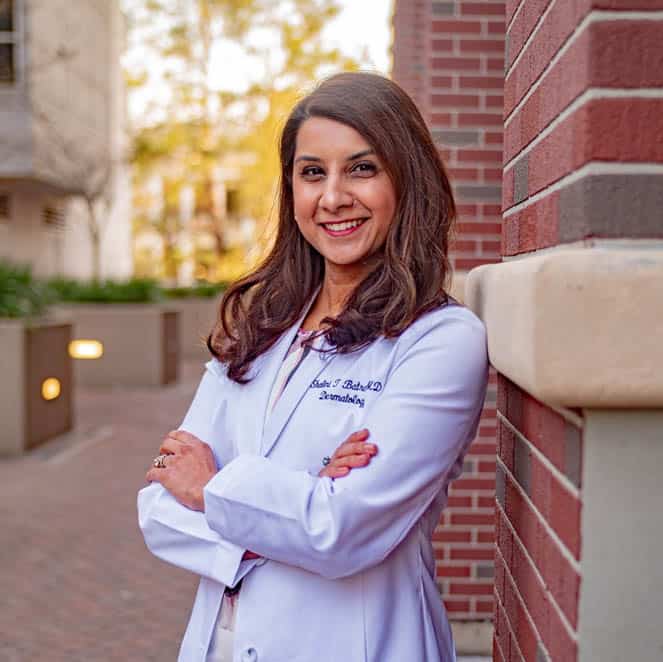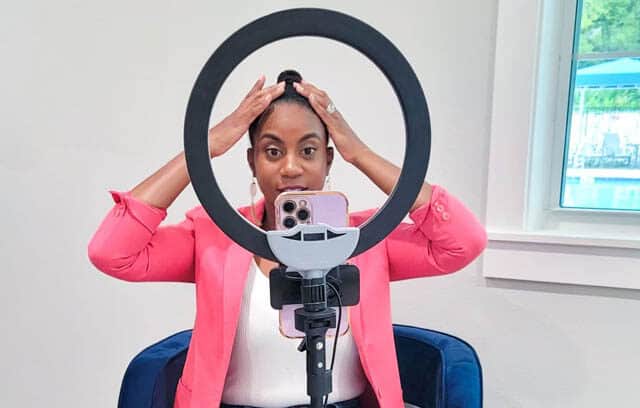Ask the Doctor: Raising awareness about alopecia
September is Alopecia Awareness month. Many women struggle with alopecia, but don’t often talk about it, since many don’t know much about alopecia.
Stephani Shepherd has been living with alopecia for over 15 years and has openly shared her experience. She is currently undergoing treatment with local Dermatologist, Dr. Shalini Batra of Indigo Dermatology. Dr. Batra is shares her expertise on alopecia and the steps you can take if you have been experiencing hair loss.

What is alopecia?
Dr. Shalini Batra: Alopecia is the generic term for any type of hair loss.
Dermatologists divide alopecia into scarring and non-scarring subtypes.
In scarring alopecia, there is inflammation in the skin and around the hair follicle. This destroys the hair root and creates scar tissue. These types of alopecia are typically more difficult to treat.
The most common types of scarring alopecia I see include central centrifugal cicatricial alopecia, frontal fibrosing alopecia, some lupus subtypes, and traction alopecia.
In non-scarring alopecia, there tends to be less aggressive inflammation and no scar tissue deposition. We often have much better success in regrowing hair if the underlying cause is being addressed.
The most common culprits are female and male pattern hair loss, alopecia areata, early traction alopecia, and telogen effluvium.
In your experience, does an early diagnosis improve the chances of stopping hair loss?
Dr. Shalini Batra: Yes, yes, and yes! The first step is to get in to see a board-certified dermatologist who has been trained in hair loss, early!
Unfortunately, many people try home remedies, Google treatments, over-the-counter supplements, and cosmetic products for years before they see the doctor for hair loss.
This is valuable lost time when it comes to certain alopecias and can be the difference between permanent hair loss/bald patches and a fairly normal scalp.
How is alopecia treated?
Dr. Shalini Batra: The treatment options vary. I use minoxidil in all forms of hair loss because it stabilizes the hair shaft and improves blood flow.
Platelet rich plasma is a great option for appropriate candidates in non-scarring alopecia, particularly female and male pattern alopecia.
Microneedling is now showing some benefit in some types of alopecia. Injected and topical steroids can be beneficial to decrease inflammation.
Certain cosmoceutical supplements can be beneficial, such as Nutrafol and Viviscal. I don't recommend universal use of non-medically tested supplements since the data doesn't support they have much benefit.
Beyond that, I use various oral prescriptions to target the underlying cause.
Should moms see a dermatologist for post-partum hair loss?
Dr. Shalini Batra: It is normal to have post-partum telogen effluvium about 3 months after delivery. It usually resolves on its own after 6-12 weeks, and the hair regrows.
If the hair loss is lasting longer than 12 weeks or there are any scalp symptoms, such as itching, redness, or burning, it is probably worth an evaluation.
There are things we can do to slow down telogen effluvium when it starts (depending on breast-feeding status) so there is no harm in talking to your dermatologist when it starts.
If you are wondering if your hair loss is related to alopecia, you may contact Dr. Batra’s office at indigodermatology.com and follow her on Instagram @drshalz.skinmd


